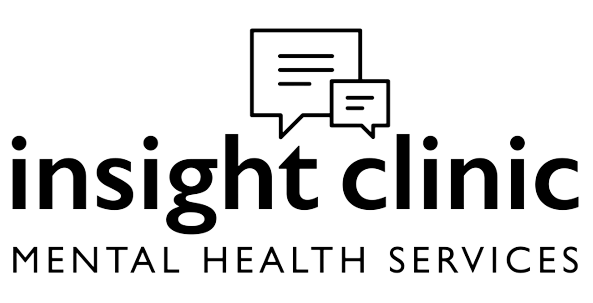Policy on Parental Presence During Therapy Sessions
At Insight Clinic, our priority is to create a safe and supportive environment that promotes client autonomy, confidentiality, and effective therapeutic outcomes. To ensure the best possible care, the following policy applies to the presence of parents or guardians during therapy sessions for clients of all ages:
1. Therapy for Adult Clients (18 Years and Older)
• Autonomy and Confidentiality:
Adult clients have the right to privacy and confidentiality in their therapy sessions. Parents or guardians are not permitted to attend sessions unless the client explicitly consents and deems their presence beneficial.
• Consent Requirement:
Any third-party attendance in therapy must be agreed upon by the client in advance and documented in writing.
2. Therapy for Teenage Clients (Ages 13–17)
• Balancing Autonomy and Parental Involvement:
While parents or guardians may be involved in the therapeutic process, teenage clients are entitled to confidentiality to foster open and honest communication.
• Clinician’s Discretion:
The clinician will assess the appropriateness of parental presence based on the client’s age, maturity, and therapeutic needs. Parents may be invited to participate in specific parts of the session if it is deemed beneficial, but the primary focus will remain on the teenager’s individual therapeutic goals.
3. Therapy for Young Children (12 Years and Younger)
• Parental Involvement:
For younger children, parental or guardian involvement may be integral to the therapeutic process. However, the clinician will determine when and how parental presence is appropriate.
• Confidentiality for the Child:
Parents may be asked to wait outside the session to allow the child space to express themselves freely. Session summaries or feedback will be provided to parents as appropriate, in line with the child’s best interests.
4. Clinician’s Authority to Determine Session Structure
• The clinician has the professional discretion to decide when parental presence may be helpful or disruptive to the therapeutic process.
• If the parent insists on being present, but the clinician believes it may compromise the effectiveness of therapy, the clinician may recommend alternative approaches or discuss boundaries with the parent.
5. Legal and Ethical Compliance
This policy aligns with the following applicable laws and guidelines:
• Australian Privacy Act 1988: Ensures the confidentiality of client information and restricts unauthorized disclosure.
• Health Records Act 2001 (VIC): Regulates the handling of health information, including access and privacy rights.
• Children, Youth and Families Act 2005 (VIC): Outlines the best interests of the child as the primary consideration in any therapeutic context.
• National Standards for Mental Health Services (NSMHS): Emphasizes client-centered care, including confidentiality and informed consent.
• Mandatory Reporting Laws: In cases where a child is at risk of harm, clinicians are required to report concerns to the appropriate authorities.
6. Special Circumstances
• In cases where there is a legal requirement or a risk of harm, parental involvement may be adjusted to ensure the client’s safety and compliance with mandatory reporting obligations.
If you have any questions or concerns about this policy, please feel free to contact us at 03-91101049.



